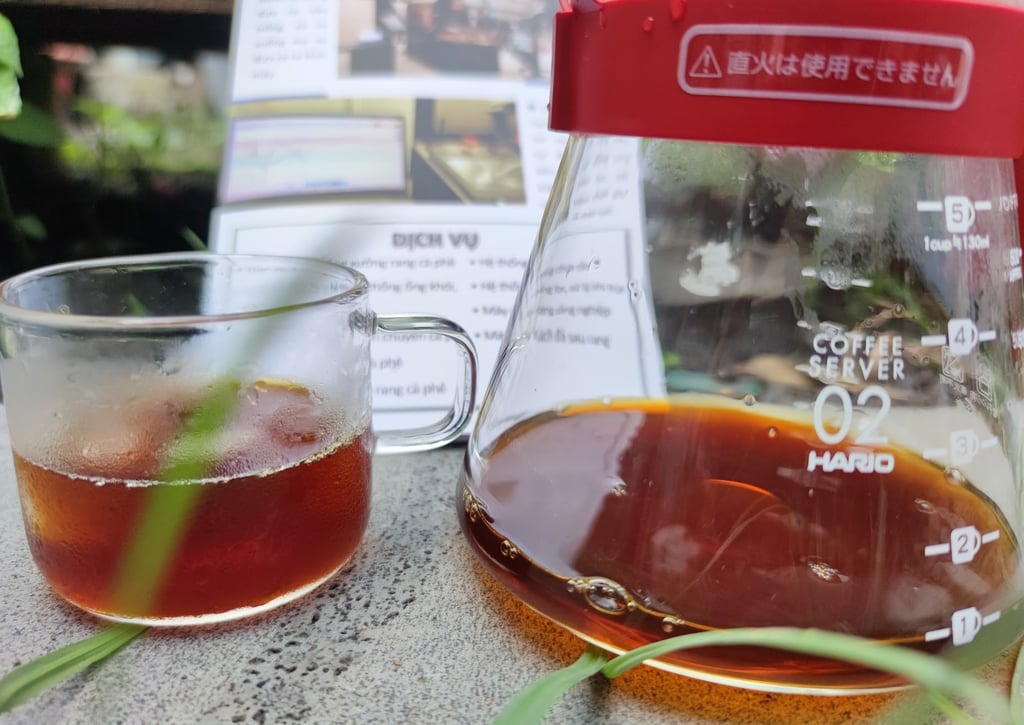What is Specialty Coffee? Discover the World of Quality Coffee
12/20/20243 min read
Definition of Specialty Coffee
Specialty coffee is a term that was first introduced in 1974. It refers to the exceptional quality of coffee beans, as well as the meticulous production process required to ensure the final product meets the highest standards. Unlike regular commercial coffee, specialty coffee is produced on small-scale farms where coffee growers carefully manage every stage of cultivation and harvesting.
The quality of specialty coffee beans is often inspected and graded based on specific criteria set by renowned coffee organizations such as the Specialty Coffee Association (SCA). This grading system evaluates various factors, including flavor, aroma, acidity, and structure. To be recognized as specialty coffee, the product must score at least 80 points on a 100-point scale. This means not all coffee beans qualify as specialty; only outstanding products with remarkable distinctions receive this recognition.
Additionally, every specialty coffee has a clear origin, often accompanied by stories and cultural traits unique to its source. Factors such as climate conditions, altitude, processing methods, and cultivation techniques all influence the quality and flavor of the coffee beans. In summary, specialty coffee is not just a beverage but a work of art that embodies the passion and dedication of the coffee growers.
Criteria for Identifying Specialty Coffee
Specialty coffee is determined by several important criteria, with each stage in the coffee production process playing a crucial role in defining the quality of the final product. One of the first criteria is the timing of harvest. Coffee is only considered specialty if the beans are harvested at their optimal ripeness, ensuring the flavor and quality meet high standards.
Processing methods are also essential in identifying specialty coffee. The processing stages include washing, drying, and roasting. Different processing techniques, such as washed or natural methods, can result in distinct flavors, affecting whether the coffee qualifies as specialty.
Quality control at every stage of production is critical. From selecting seeds, nurturing coffee plants, to harvesting, each stage must be carefully monitored to ensure no factors compromise the bean quality. Finally, expert evaluation scores also play a significant role in identifying specialty coffee. Experts typically use a scale of 80 or higher to certify a coffee as specialty. These scores are based on criteria like flavor, aroma, and balance.
The environment significantly impacts coffee bean quality. Factors like altitude, climate, and soil conditions determine the coffee plant's growth and ultimately influence the beans' flavor. Thus, the combination of these elements helps determine whether a coffee meets specialty standards.
Why Specialty Coffee is Gaining Popularity
Specialty coffee has garnered considerable attention from consumers and experts in the coffee industry. The primary reason for its popularity is the shift in consumer preferences, as more people seek premium products of higher quality. Specialty coffee is renowned not only for its unique flavor but also for its respect for the production process and the origins of the beans.
The standout difference between specialty coffee and regular coffee lies in its quality standards. Specialty coffee often meets rigorous criteria, including flavor, purity, and unique characteristics from its growing region. These products are typically cultivated in areas with ideal weather and terrain conditions, resulting in rich and diverse flavors. This has attracted coffee enthusiasts looking for novel and distinctive experiences, far beyond what they have experienced with regular coffee.
Moreover, the growing knowledge and awareness about coffee quality also play a vital role in promoting specialty coffee. Consumers are increasingly interested in researching the origins, production processes, and health impacts of coffee. These factors have made specialty coffee an integral part of modern coffee culture, driving consumption and fostering a growing community of coffee lovers.
How to Properly Enjoy Specialty Coffee
Enjoying specialty coffee is not just about drinking it but also an art form that reflects respect for this high-quality product. To fully appreciate the essence of specialty coffee, consumers should master the proper steps for brewing and savoring it.
The first step in enjoying specialty coffee is selecting high-quality beans. Arabica or Robusta beans, if grown at high altitudes and well-processed, deliver exceptional quality. Coffee drinkers should research the beans' origins, which helps them understand the natural flavors and distinctive highlights of the product. After choosing the right coffee beans, roasting and grinding also play a crucial role. Roasting beans at the right temperature enhances their flavors to the fullest.
Once the coffee is ground, the brewing process is the next important step. There are various brewing methods, from traditional Vietnamese filters and coffee machines to pour-over techniques. Each method delivers unique flavors and experiences. The brewing time, water temperature, and coffee-to-water ratio must be carefully considered to optimize the flavors.
Finally, to truly enjoy the taste, coffee drinkers should engage all their senses. Observe the color, listen to the sounds during brewing, and savor the aroma and taste as the coffee unfolds in the mouth. To maintain the best quality of specialty coffee beans, consumers should also pay attention to storage. Beans should be kept away from light and humidity, ideally in airtight containers at a cool temperature, to ensure freshness and flavor.


